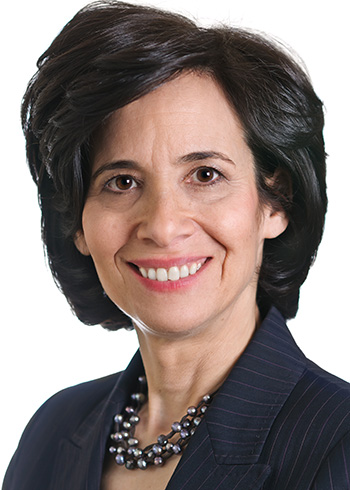Scientists as messengers

 Dear Research Advocate,
Dear Research Advocate,
Our guest author this week is Jenny Luray, Research!America’s Senior Advisor.
We are nearly a year out from the 2020 Presidential election and six months away from the Iowa caucuses. While candidates were meeting voters and sampling local treats at the Iowa State Fair, a new survey commissioned by Research!America and Science Debate was released, demonstrating a large majority of Iowans want presidential candidates to talk about science-related issues. Ninety percent believe it is important for the U.S. to be a leader in science and technology research. These survey results reveal a not-to-be missed opportunity for candidates to highlight the value of science and innovation to our nation’s future. You can read more in our press release.
Another survey recently released from the Pew Research Center shows that Americans’ trust in scientists has increased. It also highlights an important area of opportunity for the science community because familiarity with the work of scientists is associated with a more positive and trusting view of them. Why does this matter? Trust in scientists is pivotal whether the goal is maximizing the positive impact of public and private sector-fueled discovery or bolstering support for it. According to Pew, the percentage of Americans who have a “fair amount” or “great deal” of trust in scientists has increased from 76% to 86%, with those having a “great deal” of trust growing by 14 percentage points since 2016. Other surveys also affirm a high level of trust in scientists, including a 2015 benchmark survey conducted by ScienceCounts, which found 74% of Americans highly trust scientists to tell the truth.
A key takeaway: Scientists are trustworthy messengers and when policymakers undervalue research and innovation relative to its societal impact, scientists can do something about it — and many of you are! Here’s another opportunity for engagement: write a blog post for us! Share your perspective on the ways in which your science or science writ large drives innovation and benefits our nation and world (email Robert, [email protected]).
A great example of science driving innovation to benefit humankind: two experimental treatments for Ebola were found to cure over 90% of patients as reported in The New York Times earlier this week. It’s a ray of hope amidst the dire circumstances of the Ebola outbreak raging in the Democratic Republic of the Congo, where 1,800 people have already died. Development of both treatments was aided by the Biomedical Advanced Research and Development Authority (BARDA), so this is also an example of the power of public-private partnerships.
Of course, getting the medicine to patients is a big challenge because of the level of violence in the virus’ hot zone. Hopefully the CDC, which has played vital roles in beating previous Ebola epidemics, will be able to return to the area soon. Containing deadly outbreaks and epidemics is just one of many, many hats worn by the CDC. Learn more about this incredible agency, including its history, in our new webpage.
Speaking of CDC and BARDA, space is filling fast for our September 5 National Health Research Forum where we will be joined by HHS Secretary Alex Azar, CDC Director Robert Redfield, BARDA Director Rick Bright, and other agency leaders. Register now!
Talk earlier this year that Congresswoman Dianna DeGette (D-CO) and Congressman Fred Upton (R-MI) would be exploring follow-on legislation to their bipartisan 21st Century Cures bill has turned to action. Representatives DeGette and Upton are looking at ways to expand upon the landmark 2016 bill and have begun listening sessions. On Monday, September 23, we invite Research!America alliance members to a meeting with the lead staff from their offices to learn more and exchange ideas. For more information, email Jacqueline at [email protected]. (If you are not a Research!America member and want to learn more about membership, please contact Donna at [email protected].)
There is still time for graduate student and postdoc-led science policy groups to submit proposals for funding to engage with government officials and community leaders through Research!America’s 2019 civic engagement initiative. Spread the word throughout your university networks!
Sincerely,
Jenny Luray




